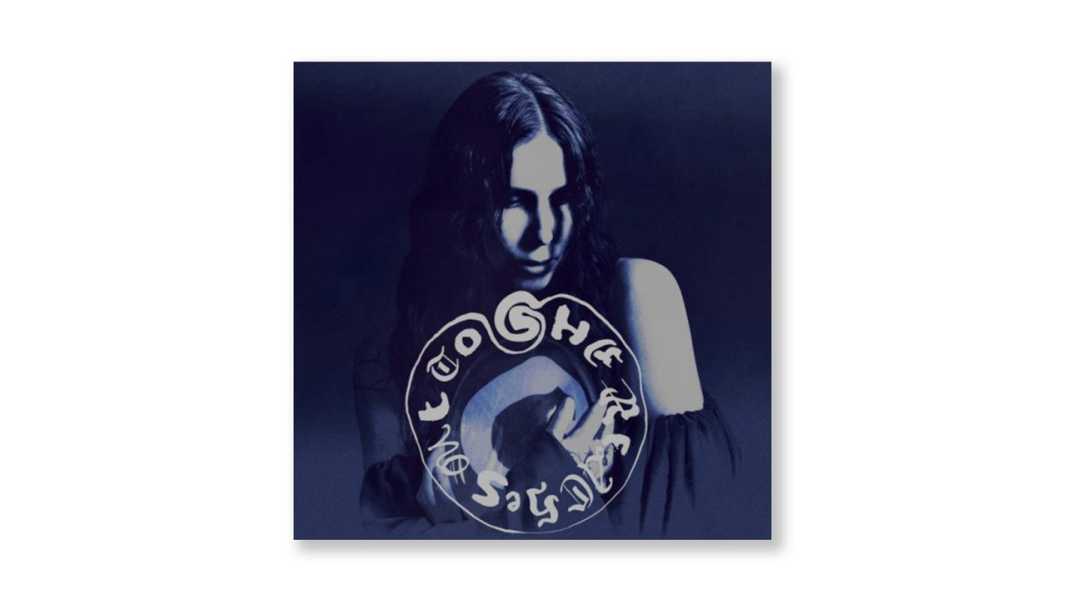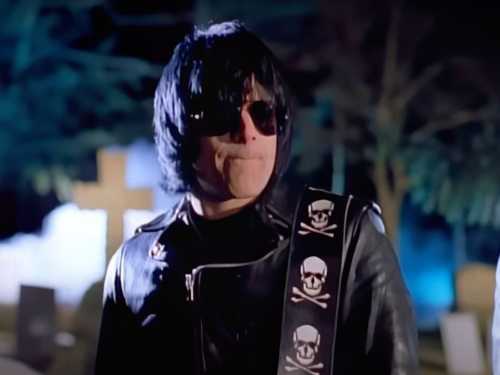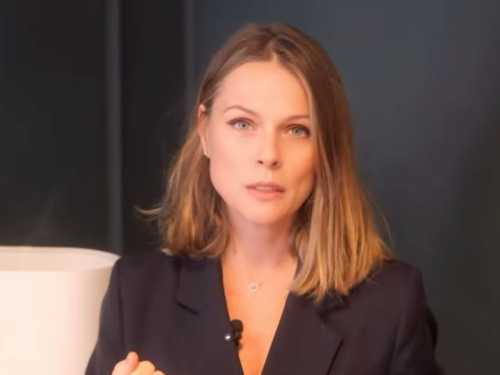
Save this storySave this storySave this storySave this story
The forty-year-old musician Chelsea Wolfe has roots in folk and country, but her music is imbued with the sonic weight of doom metal, with sludgy guitars and droning bass notes that sound as though they are crawling out from underground. Through seven studio albums, she has made a career operating outside the bounds of genre or any easy definition of style. Born in 1983, Wolfe grew up in and around Sacramento, California. Her father was in a country band called El Dorado, which opened for musicians including Tanya Tucker. Her parents divorced when she was young, and during stays at her father’s house she would use his home studio to record versions of theme songs to movies like “The NeverEnding Story.” By the age of nine, she was writing and recording her own material, which she has described as “gothy R. & B.” (She cites Aaliyah as an early influence.) She also spent time living with her grandmother, a woman who taught her about, as Wolfe put it in one interview, “different realms.” Wolfe matured into an artist who sings as though she is in between waking and dreaming, someone who seems to float comfortably through considerations of the living world and whatever comes after.
Her 2010 début, “The Grime and the Glow,” recorded on an old eight-track Tascam 488, sounded raw and up close, with sparse songs and cross-genre ballads. One of its tracks is “Benjamin,” which features brooding swirls of piano and Wolfe’s voice, both sweet and heavy with reverb, exhaling a witchy love song: “Take it, kiss it, fix it.” Her music’s core themes are desolation, longing, fear, and fearlessness, though she has rarely centered herself in her songs, even when the material is drawn from personal experience. Her writing has instead been steeped in rich imagery and metaphorical through lines. Her album “Abyss” (2015), for instance, was inspired by her experience with sleep paralysis, a condition for which she was hospitalized as a child. Her second album, 2011’s “Apokalypsis,” drew its central preoccupations from the Book of Revelation. Wolfe had developed a fascination with the etymology of the word “apocalypse,” and found that one of its root meanings is “lifting of the veil.” This inspired an album of thick, plodding instrumentals and distorted, distant vocals, with sparse lyrics that rely on haunting repetitions and revisitations. The song “Demons” closes out with Wolfe repeating the titular word a dozen times. On the cover is a self-portrait of Wolfe looking possessed, with slots of empty white where her pupils should be. The final track, “To the Forest, Towards the Sea,” is almost entirely instrumental, with Wolfe’s voice coming in only at the end, right before the electronic distortion fades, to hint at some uncertain metamorphosis: “What’s happening to me?”
Wolfe’s seventh album, “She Reaches Out to She Reaches Out to She,” out Friday, is interested in cycles of healing, the experience of living as new wounds accumulate atop the old. The album was mixed by Shawn Everett, a Grammy-winning engineer and producer renowned for his work with Adele and Kacey Musgraves, among others, and was co-produced by TV on the Radio’s Dave Sitek. As a producer (for acts including Santigold and the Yeah Yeah Yeahs), Sitek is known for adding a sort of sheen to otherwise mechanical or distant soundscapes, and on “She Reaches Out” Wolfe’s deliciously unapproachable chamber of noise and warm vocal incantations achieves new immediacy. The song “Whispers in the Echo Chamber” begins with a choppily harsh drone of sound interrupted by electronic drums, followed by yet heavier droning. Right when it feels like too many sonic collisions at once, Wolfe makes her entrance with airy vocals that dissipate as soon as they’re uttered, like strands of cotton candy pulled apart in a vicious wind. “Whispers in the echo chamber of my mind / in the void they come alive and intertwine”: the words sound like an invitation, like a person warmly beckoning you into a house that looks haunted. Wolfe’s delivery can blur language into one long, braided word. On “Tunnel Lights,” she sings “No way around it / no way to fight / a pull too strong / don’t try to forfeit / the way is through,” but each line smears into the next, creating a hypnotizing melodic effect—the voice as an instrument in the purest sense.
I hesitate to say that this new album is quieter than Wolfe’s previous ones, because the synthesizers still take up grand space, stabbing into silent moments with ferocity, as on “Eyes Like Nightshade,” which might be the busiest of the album’s tracks. But “She Reaches Out” favors sparse instrumentation that allows Wolfe’s voice to come to the fore, the better to showcase her ranging genre interests. There are moments on the record, such as on the track “Unseen World,” that, to my ear, feel not so far removed from what some might call alternative R. & B., nodding back to Wolfe’s youth making Aaliyah-like songs. The jagged electronic drone and echoing vocals in “Place in the Sun” evoke a kind of industrial, ambient, experimental pop. But, throughout the album, Wolfe’s sometimes heavy, sometimes whispery vocals take the songs to a more unusual place. Her voice unlocks a door to a more expansive realm. ♦
Sourse: newyorker.com






